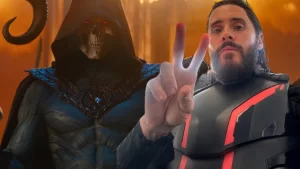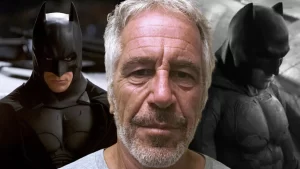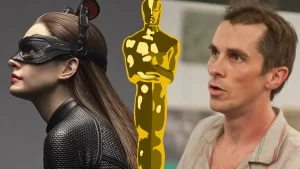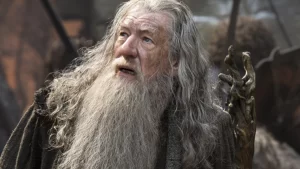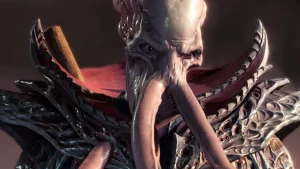Not a Masterpiece
A Film Review of The Grey
By: Lawrence Napoli
I’ve never been a fan of the pure, plain survival film. Some man or woman out in the middle of anywhere with precious little else besides their own personal creativity to help them get by was never particularly interesting unless it had some kind of fantastic angle to it. This is why I love films that involve zombies; the post-apocalypse and space/sea travel because the extra bells and whistles dress up the core theme of survival into something more interesting than some guy trying to make a tool out of a stick. The Grey is a film that borderlines on the outright deceitful due to its marketing campaign promoting this film as the sort of fantastic survival that is on par with those I previously mentioned. The Grey is not as exciting as every trailer makes it out to be. The Grey is about as unassuming as a survival film can be and what’s worse, the inconsistent devotion to realism only has some plot points resolving the way they probably would while the rest require a healthy dose of blind faith to simply accept and move on. The Grey is a film that will disappoint if the viewer requires more than an exceptional performance by Liam Neeson to entertain.
Writer/director Joe Carnahan and his co-writer Ian Mackenzie Jeffers had a very curious philosophy in regards to the story they presented onscreen: everything must bow to convenience. Naturally, the simulated drama that is generated in movies is built upon the foundation of convenient plot twists, but the best fictions are capable of masking this fact if what happens on film is in line with the rules of reality established within the fiction. Neo is a superman within The Matrix because he has some undefined “chosen” insight/enlightenment in manipulating that system – in the “real world” you can punch him in the face, he’ll bleed and you don’t have to worry about being jump-kicked into space because that’s physically impossible. In The Grey, the survivors of a plane crash in Nowheres-ville, Alaska seem to be capable of doing things beyond their exceptionally low skill set in order to survive their series of unfortunate events. Even the main protagonist, Ottway (Liam Neeson) displays the sort of wilderness survival skills one would associate with Bear Grylls, although the film clearly establishes him as an ex-merc of some sort and nothing more. The biggest weakness of this script is the lack of detail both in plot and character development. It is in detailed presentation and explanation that an audience can understand why a character can do what he or she does and how they get to where they’re going. Glazing over the details is evidence of convenient filmmaking that isn’t concerned with making the tough decisions that may alter the plot’s culmination. If you want to do a realistic survival film, then go all the way because half-measures can be sniffed out by audiences better than even we would admit, and sour word of mouth can debilitate even the biggest budget films. As a result, this film hovers exactly in the middle of the nether realm between absolute plausibility and impossibility, and that’s a place that no film ought to aspire to. This leaves a film’s plot twists to develop whimsically as opposed to a gradual building of credibility that establishes the rules of the fictional world one presents to an audience, thus making it easier to accept and stacks the deck in the filmmaker’s favor. The rest of the story plays out the way it more than likely would in the real world with a friendly kick in the groin to the audience at the very end: thanks for watching.
I normally don’t care for discussing money issues in film production, but The Grey presents an interesting opportunity to think about the management of funds and how it directly impacts the story. The third installment of the “Liam Neeson versus the world” trilogy boasts the largest budget among Unknown (2011) and Taken (2008) at $34 million dollars. Common logic suggests that more money presents more freedom to the filmmakers in terms of what can and cannot be done with effects, stunts and performance to yield a better story. Incorrect. Upon The Grey’s conclusion, I instantly made note of how this film was far inferior to Neeson’s previous two singular adventures. So where did this film go wrong? None were considered major studio productions, the stories in each were nothing to write home about and they all heavily depended on the aura of “Liam Neeson kicking ass” to make the whole production work. The one thing that sets The Grey apart is the incredibly hostile environment of the frigid wilderness that is heavily animated by CG. The snow, the wolves and the very terrifying plane crash that puts the cast into their predicament represents the lion’s share of the budget. They all look great and they’re all very intimidating, but they somehow don’t present a very intriguing opposition to Liam Neeson, and you know why? You can’t punch snow, you can’t punch wolves (1 wolf yes, pack of wolves, no) and you can’t punch a plane crash. Nature does not present an effective antagonist in film, and it never will because it is impersonal and cannot be defeated, merely circumvented. Still, an awful lot of money was spent to produce this vision of nature’s fury and therefore a large amount of screen time must be devoted to it. When that happens, screen time gets subtracted from the human characters that exist to generate sympathy and intrigue for the main character and subsequently, the focal point for the audience’s identification with the story is marred. The audience loses out on a lot of potential character development which is replaced by a form of opposition that cannot be affected in any way despite the best efforts of the main character; not the best rationale for the distribution of funds and it shows on the screen.
The one aspect of this film that is an absolute triumph is Liam Neeson, who produces one of his most powerful performances since Schindler’s List (1993). Anyone who has followed his career knows about the terrible tragedy that befell his wife Natasha Richardson in 2009 (skiing accident) and the incredible anguish Liam felt for the loss of his wife of 15 years. The reason I mention this is because The Grey is a film that appears to have been custom built for Mr. Neeson as the character he plays, Ottway, also loses his wife to tragedy and it is the primary source of his profound sorrow. I am uncertain if this was truly coincidence, the filmmakers approached Liam or this was a project he approached himself, but the end result is a fine exploration of the emotional spectrum of a human being that is pushed beyond his physical limit and light years past spiritual sanity. The key to a survival film is portraying the strength of will despite overwhelming odds and ever declining excuses to go on. The film gives Neeson plenty of opportunities to portray the conflicting emotions behind the reality of despair and the instinct to survive. Neeson is one of the best leading men Hollywood has ever seen and despite the shortcomings of The Grey as a film, seeing what a real actor can do for the camera is quite a treat. There is one moment towards the end of the film where Ottway curses out God and in that one instant in time Neeson was transported back to that fateful day in 2009 and every ounce of guttural rage, anger, sorrow and defiance gets released into the snowy void. Simply put, it was an amazing scene to experience and should forever be linked to Neeson’s entire body of work as a specific example that defines him as a truly great actor.
The Grey is not a film for everyone and I would only recommend it to people that enjoy movies that are driven by a single actor who produces an exceptional performance. The action is sparse, the pacing is a struggle and the ever presence of white that constantly fills the frame could be annoying to the less disciplined member of the audience. This film doesn’t devote any real amount of time to answering the questions of “why” and “how,” and one would think that those would be fundamentals in making a survival film interesting at all. Liam Neeson is a force of nature unto himself, but despite his best efforts, this film washes out and the ending does not help at all. It is one of the worst I’ve seen since The Mist (2007).


